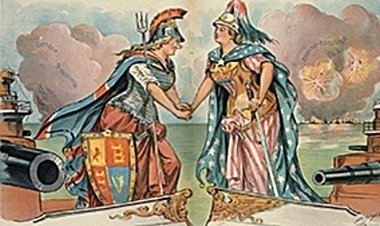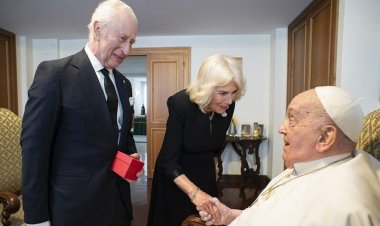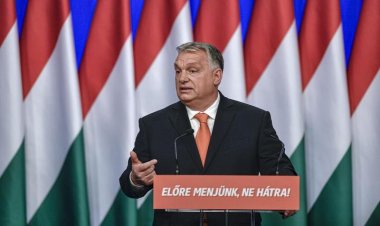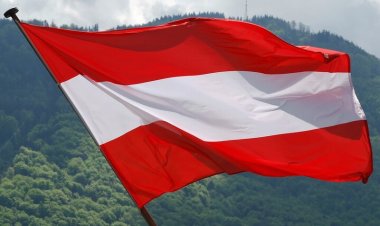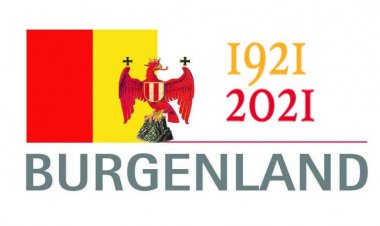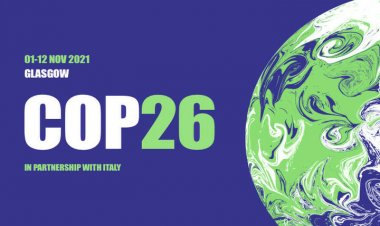NGOs -In Praise Of Secret Funding

They are demanding the privileges associated with colonial power
Why would Non-Governmental Organisations who swear on the bible of transparency object to the Defence of Democracy Package proposed by the European Commission? After all the principal aim of this proposal is to shine the light of openness on the activities of NGOs funded by foreign interests. The Commission’s proposal states that its aim is ‘protect our democracies from entities funded by or linked to third countries and exercising economic activities in the EU that may impact public opinion and the democratic sphere. It will also aim to promote free and fair elections, to strengthen civil society and civic engagement’.
Writing in Politico, Eleanor Brooks and Israel Butler of Liberties, a German based NGO, argue that law requiring foreign NGOs to register and acknowledge the sources of their funding represents a threat democracy. They believe that the maintenance of a ‘free civil society’ requires that NGOs in receipt of foreign funding should be free from the burden of transparency.
Brookes and Butler warn that ‘the Commission’s proposed rules adopt and legitimize the smear that CSOs are potential trojan horses for foreign governments’. Yet all these rules do is to alert the public to the fact that foreign funded organisations may promote interests that are at variance with those of the society within which they operate. The Foreign Agents Registration Act of the United States enacted in 1938 serves as a model in this respect. It requires organisations to periodically disclose their relationship with foreign principals as well as the funding they receive from abroad.
FARA like the Commission’s proposed legislation allows a nation’s citizens to know the source of the funding and influence exerted on public life. Transparency on this matter is no different to gaining clarity about the financial links between individual and corporate donors and political parties. However, Brooks and Butler take the view that NGOs should be held to a different standard than other interest groups. They warn that ‘authoritarian leaders’ can ‘weaponize transparency restrictions’ and undermine public trust in the work of NGOS, which will make it ‘harder for them to fulfil their missions’.
The reference to the weaponizing of transparency is fascinating for it suggests a selective orientation towards the value of transparency. Why should the public be deprived of an open account of the role of foreign funding and interest? Or would they argue that a similar opaque regime should operate in relation to domestic funding of politicians and parties? If openness and honesty are represented as weapon wielded by the forces of authoritarianism than democracy is in big trouble.
In support of their thesis that ‘transparency is ok for some, but not for us’ they warn that ‘smaller scale donors who are likely to be put off, fearing the consequences they may face if their declarations are made public’. In light of their stated commitment to a ‘free civil society’, their support for donor secrecy is perverse. Is donor secrecy the new value of civic society? Their entire justification for their selective approach to transparency is that it would ‘provide authoritarian leaders with ammo’.
They contend that ‘as witnessed in Hungary and in Russia’ authoritarian leaders have used transparency restrictions to ‘break public trust’ in foreign NGOs. Paradoxically, Liberties, the organisation they represent constantly demands that Hungary and Poland should be more transparent. From their standpoint these governments can never be transparent enough. But in an act of casual hypocrisy, they insist that when it comes to foreign NGOs, transparency is a curse.
In reality almost any rule or law can be perverted by anti-democratic governments but that is not a legitimate argument against the enactment of rules. As it happens rules enacting transparency are the mildest form of control and regulation. Insofar as it pertains to foreign NGOs and other interest groups it allows the public to assess to what extent the activities of these organisations are consistent with the interests of the European Union or their nation. Unless one takes a dim view of public opinion clarity on this matter can only assist democratic decision making.
The stand taken by Liberties is widely supported by their colleagues in the NGO industry. Over 200 NGOs have published a letter attacking the Commission’s proposals. The letter warns that such legislation can hurt the EU’s credibility to defend human rights abroad and embolden repressive leaders. From their standpoint, human rights can best be defended if NGOs are freed from having to account for their links to foreign sources of funding and foreign agencies. The reason why they take such strong exception to the Commission’s proposals is because they believe that if attention is drawn to their foreign affiliation and source of funding than their moral authority with the public will be undermined.
The important issue raised by NGO resistance to rules that enforce transparency over foreign affiliation is whether they should have the same status as domestic institutions. Does not a government have the right to regard NGOs which are foreign funded and who who are in the business of advocating foreign causes to be treated differently than domestic institutions? Should not citizens be informed that NGO who are in the business of influencing their opinion are supported by foreign agencies?
If your answer to these question is in the negative than in effect you support offering NGOs with the privileges associated with colonial power.
Brooks and Butler are firm believers in a double standard that exempts foreign NGOs from being subject to the form of transparency that applies to other interest groups. They assert that only mean-spirited authoritarian governments can benefit from the Commission’s proposal. They seem to believe that since they are better at protecting democracy from authoritarian governments than a nation’s citizens, they should be exempt from public scrutiny. Liberties, the NGO which they represent received €700k from Open Society Foundations in 2021 and for the current year they have received over €600k from the EU CERV Operating Grant. Why should the world not know the source of their funding?
Frank Furedi
MAY 10, 2023


